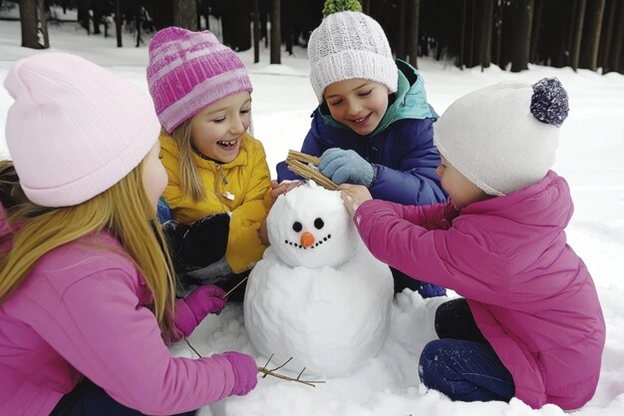8 Benefits of an International Baccalaureate (IB) Education
Choosing the right educational path for your child is one of the most important decisions you will make as a parent. Providing an international education that meets your child’s needs can equip them with the skills and perspectives needed to thrive in today’s global environment.
The International Baccalaureate (IB) Programme is designed to do just that. Established in 1968, the IB offers a curriculum that emphasizes critical thinking, cultural awareness, and holistic development. Recognized worldwide for its high academic standards, the IB is offered in over 5,000 schools across more than 150 countries. If you’re considering an international education for your child, here are eight key benefits of the IB Programme that can have a lasting impact on their academic and personal growth:
1. The Curriculum Helps Nurture a Global Perspective
One of the most distinctive features of the IB is its commitment to developing global awareness. In today’s interconnected world, understanding different cultures and global issues is more important than ever. The IB curriculum encourages students to engage with these topics, fostering an awareness that extends beyond their immediate environment. Through subjects such as History, Geography, and Global Politics, as well as through intercultural exchanges and projects, students are exposed to diverse viewpoints and challenges.
This familiarity with a broader worldview enables your child to develop an understanding and appreciation for diversity. As they learn about various cultures, histories, and global challenges, they begin to recognize the value of differing perspectives. This global awareness helps your child become a more empathetic individual, one who can work collaboratively with people from different backgrounds. They are better prepared to engage in cross-cultural communication and problem-solving, skills that are essential in an increasingly globalized workforce.
2. It Is Designed to Foster Critical Thinking Skills
The IB Programme is also renowned for fostering critical thinking skills, which are vital for academic success and lifelong learning. Through its inquiry-based learning approach, the program encourages students to ask insightful questions, analyze information deeply, and challenge assumptions.
For example, instead of merely memorizing facts, IB students engage in discussions, debates, and projects that require them to apply their knowledge to real-world problems. They explore complex topics from multiple angles, evaluate different sources of information, and consider various perspectives. This hands-on, active learning approach nurtures their ability to think critically and approach problems with creativity and problem-solving strategies. As a result, your child will not only be well-prepared for higher education but will also become a more independent thinker.
3. The Program Focuses on the Students’ Holistic Development
Beyond academics, the IB Programme emphasizes the holistic development of students, recognizing that personal growth is just as crucial as academic success. Through its balanced curriculum and diverse extracurricular activities, the program nurtures students’ intellectual, emotional, and social growth.
A key component of this holistic approach is the Creativity, Activity, Service (CAS) requirement in the IB Diploma Programme (DP). CAS encourages students to engage in creative pursuits, physical activities, and meaningful community service. These experiences not only help students build valuable life skills but also foster a sense of empathy, responsibility, and leadership.
By placing equal importance on both academic achievement and personal development, the IB Programme ensures that students grow into well-rounded individuals and are able to navigate the complexities of the modern world with not just academic skills, but with the interpersonal and emotional maturity to handle life’s challenges.
4. It Is an Excellent Choice for Preparing Your Child for University
The IB’s rigorous academic standards, coupled with its focus on independent learning, provide students with a strong foundation for success in higher education. Throughout the IB Programme, students develop essential skills such as time management, research abilities, and self-motivation. These skills are crucial for navigating the demanding workload and high expectations of university courses. The program’s emphasis on critical thinking, problem-solving, and the ability to work under pressure prepares IB students to excel in university settings. Students learn how to manage large volumes of information, meet deadlines, and conduct independent research—all of which are central to university-level study. As a result, IB graduates are often well-equipped to handle the intellectual challenges of university life.
5. IB Schools Present an Environment Where Language Skills Can Flourish
Being multilingual is a valuable asset in a globalized world, and the IB Programme places a strong emphasis on language learning as a key component of its curriculum. Recognizing the importance of strong language and communication skills, the IB encourages students to become proficient in more than one language. The program’s focus on language acquisition not only improves students’ communication abilities but also fosters a deeper understanding of different cultures. Whether through formal language courses or immersive experiences, IB students often graduate with strong language skills that enhance their global awareness and adaptability.
6. Your Child Will Have Every Opportunity to Hone His or Her Research Skills
Students under the IBDP are required to submit an Extended Essay to complete their studies. The experience of putting this paper together helps students develop essential research and writing skills and teaches them how to synthesize ideas and present well-structured arguments. These skills are not only vital for university coursework but are also transferable to many professional careers that require data analysis, critical thinking, and problem-solving. By mastering the art of research and writing through this rigorous academic task, your child will be better equipped to tackle future academic challenges anywhere and succeed in any career that demands strong analytical and communication skills.
7. Your Child Will Be Able to Experience Leadership Training and Community Involvement
The CAS component of the IB Programme is a unique aspect of the curriculum that focuses on fostering students’ personal growth beyond academics. By encouraging students to engage in a variety of creative, physical, and service-oriented activities, CAS helps them develop important life skills, such as leadership, teamwork, and social responsibility.
Whether they are organizing charity events, leading school clubs, or participating in community outreach projects, these activities help build empathy and a sense of civic duty. The hands-on experience of giving back to their communities not only allows students to make a positive impact but also helps them grow as compassionate, socially conscious individuals. This involvement in extracurricular activities also builds leadership and organizational skills, which are highly valued in both higher education and the professional world.
8. The IB Programme Is Recognized by Global Universities and Companies
Is your child planning to study in the U.S., Europe, or elsewhere? Regardless of the destination, an IB education prepares students for the academic demands of competitive universities worldwide. The global recognition of the IB diploma can also open doors to scholarships and internships. By choosing the IB program, you’re equipping your child with a respected credential that enhances their prospects for future success.
An IB education provides a wealth of benefits that can significantly shape your child’s future. By fostering global awareness, critical thinking, and holistic development, the IB Programme aligns with your goal of raising a global citizen—someone capable of navigating the complexities of today’s world with empathy, leadership, and a commitment to making a positive impact. Choosing the IB program is an investment in your child’s future, equipping them with the skills and perspectives necessary to thrive in a rapidly evolving global landscape.





 Virtual friendships introduce children to a world where emotional communication happens differently than in the so-called real world.
Virtual friendships introduce children to a world where emotional communication happens differently than in the so-called real world.




